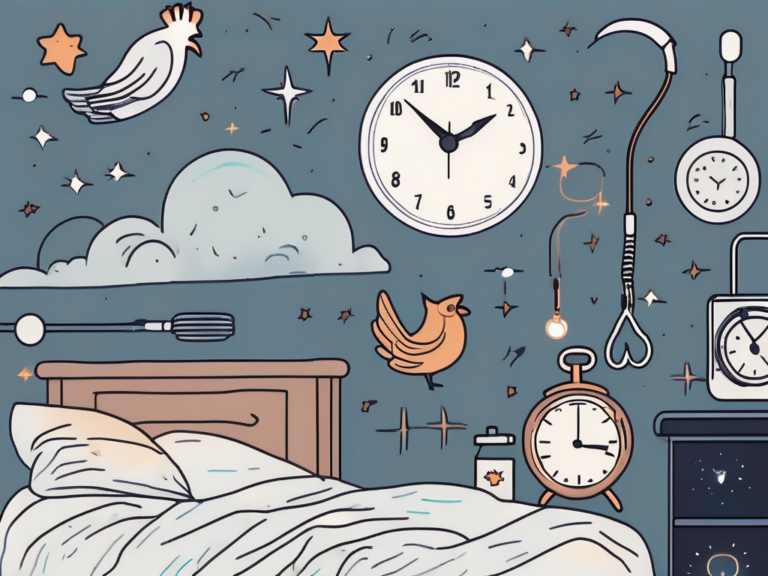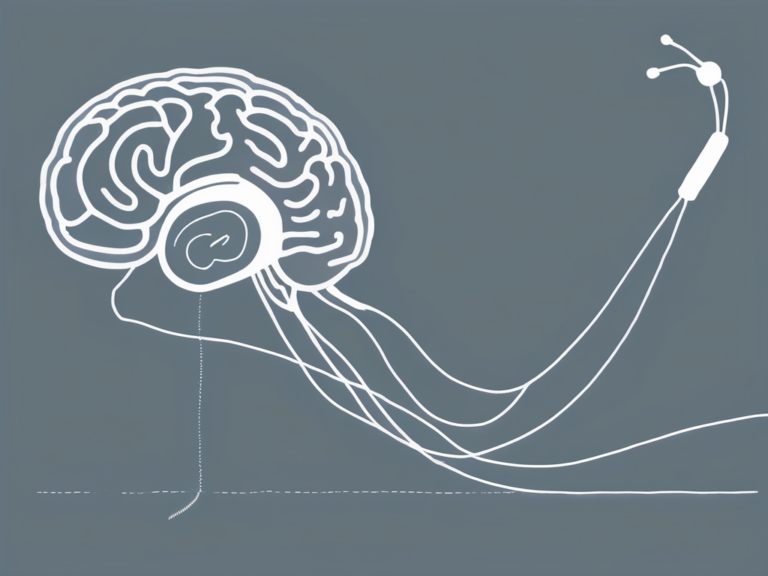How to Sleep Better: Top Tips for a Good Night’s Rest
A good night’s rest is essential for our overall health and well-being. However, many people struggle to get the quality sleep they need. In this article, we will explore the importance of quality sleep, common sleep problems, the role of diet and exercise in sleep quality, creating an ideal sleep environment, establishing a healthy sleep routine, and when it may be necessary to seek professional help. By following these top tips, you can improve the quality of your sleep and wake up feeling refreshed and energized.
Understanding the Importance of Quality Sleep
Quality sleep is crucial for our physical and mental health. During sleep, our bodies go through important processes that help restore and rejuvenate both our bodies and brains. It promotes proper cognitive function, emotional well-being, and overall performance in our daily activities. However, the connection between sleep and health is often overlooked.
Research has shown that lack of sleep can lead to a variety of health issues, including an increased risk of heart disease, obesity, diabetes, and even certain types of cancer. Additionally, insufficient sleep can negatively impact our mood, memory, and ability to concentrate. It is important to prioritize our sleep to maintain optimal health.
When we sleep, our bodies undergo a series of complex processes that contribute to our overall well-being. One important process is the release of growth hormones, which are essential for tissue repair and growth. During deep sleep, these hormones are released, aiding in the repair of muscles, bones, and other tissues. This is why quality sleep is particularly important for athletes and individuals who engage in physical activities, as it allows their bodies to recover and build strength.
Furthermore, sleep plays a crucial role in regulating our immune system. While we sleep, our immune system releases proteins called cytokines, which help promote sleep and fight off infections and inflammation. Lack of sleep can weaken our immune system, making us more susceptible to illnesses such as the common cold and flu. Therefore, getting enough quality sleep is essential for maintaining a strong and healthy immune system.
Identifying Sleep Problems
Sleep problems can arise from various factors, including medical conditions, lifestyle choices, and environmental factors. By identifying these problems, we can take steps to address and overcome them.
Common Sleep Disorders and Their Symptoms
There are several common sleep disorders that can significantly disrupt sleep quality. These include insomnia, sleep apnea, restless leg syndrome, and narcolepsy. Insomnia is characterized by difficulty falling asleep or staying asleep, while sleep apnea is characterized by pauses in breathing during sleep. Restless leg syndrome causes an irresistible urge to move one’s legs, especially when trying to sleep. Narcolepsy is a neurological disorder that affects the brain’s ability to regulate sleep-wake cycles.
Insomnia, one of the most prevalent sleep disorders, can have a profound impact on an individual’s overall well-being. The inability to obtain sufficient restorative sleep can lead to daytime fatigue, difficulty concentrating, and impaired cognitive function. Sleep apnea, on the other hand, not only disrupts sleep but also poses serious health risks. The repeated interruptions in breathing can result in decreased oxygen levels in the blood, which can contribute to cardiovascular problems and other complications.
How Stress and Anxiety Affect Sleep
Stress and anxiety can have a significant impact on our ability to sleep well. When we are stressed or anxious, our bodies produce stress hormones that can interfere with our sleep patterns. It is important to find healthy ways to manage stress and develop relaxation techniques to promote better sleep.
Furthermore, chronic stress and anxiety can lead to the development of sleep disorders. The constant activation of the body’s stress response system can disrupt the natural sleep-wake cycle, making it difficult to fall asleep or stay asleep. This vicious cycle can further exacerbate stress and anxiety, creating a detrimental loop that affects both mental and physical health.
The Role of Diet and Exercise in Sleep Quality
Our diet and level of physical activity have a direct impact on the quality of our sleep. By making mindful choices in our nutrition and incorporating appropriate exercise routines, we can improve the duration and quality of our sleep.
Foods That Promote Sleep
Some foods contain natural compounds that can promote sleep. These include foods rich in tryptophan, such as turkey, nuts, and seeds, as well as foods containing magnesium and melatonin, such as bananas, cherries, and almonds. Avoiding heavy meals, caffeine, and nicotine close to bedtime is also beneficial for a good night’s rest.
Let’s dive deeper into the fascinating world of sleep-promoting foods. Did you know that turkey is not only delicious during Thanksgiving but also a great source of tryptophan? Tryptophan is an amino acid that helps the body produce serotonin, a neurotransmitter that promotes relaxation and sleep. So, next time you enjoy a turkey sandwich, you can rest assured that you’re giving your body a natural sleep aid.
But it’s not just turkey that can help you catch those Z’s. Nuts and seeds, such as almonds and pumpkin seeds, are also rich in tryptophan. These tiny powerhouses are packed with essential nutrients and can be a great snack option before bedtime. So, the next time you’re feeling peckish in the evening, reach for a handful of nuts or seeds to satisfy your hunger and promote a restful night’s sleep.
The Impact of Physical Activity on Sleep
Regular physical activity can improve sleep quality by reducing stress and promoting relaxation. Engaging in activities such as walking, jogging, or yoga can help regulate our sleep-wake cycle and promote a more restful sleep. It is advisable to exercise earlier in the day to avoid stimulating the body too close to bedtime.
Let’s explore the fascinating connection between physical activity and sleep quality. When we engage in aerobic exercises like jogging or swimming, our body releases endorphins, which are often referred to as “feel-good” hormones. These endorphins not only boost our mood but also help reduce stress and anxiety, allowing us to unwind and prepare for a peaceful night’s sleep.
Yoga, on the other hand, combines physical movement with deep breathing and mindfulness, making it an excellent exercise choice for improving sleep quality. The gentle stretches and relaxation techniques practiced in yoga can help calm the mind and release tension from the body, promoting a state of tranquility that is conducive to a good night’s sleep.
So, whether you prefer a brisk walk in the park, a heart-pumping jog, or a serene yoga session, incorporating regular physical activity into your routine can have a profound impact on the quality of your sleep. Just remember to schedule your exercise earlier in the day to allow your body enough time to wind down before bedtime.
Creating an Ideal Sleep Environment
The environment in which we sleep plays a significant role in our sleep quality. By optimizing our sleep environment, we can create a more conducive space for rest and relaxation.
When it comes to creating an ideal sleep environment, the importance of a comfortable mattress and pillow cannot be overstated. A good night’s sleep starts with a supportive and comfortable mattress that suits your individual needs. Investing in a high-quality mattress not only ensures proper support for your body but also helps to align your spine, reducing the risk of waking up with aches and pains.
But let’s not forget about the pillow! Selecting the right pillow is just as crucial as choosing the right mattress. The perfect pillow should provide adequate support for your head and neck, keeping them in a neutral position throughout the night. Whether you prefer a firm pillow, a soft one, or one specifically designed for your sleeping position, finding the right pillow can significantly improve your level of comfort during sleep.
The Effect of Light and Noise on Sleep
Creating an ideal sleep environment goes beyond just having a comfortable mattress and pillow. Light and noise can also have a profound impact on our sleep patterns and overall sleep quality.
Exposure to bright lights, especially during the evening hours, can interfere with our body’s natural production of melatonin, a hormone that regulates sleep. To create an optimal sleep environment, it is essential to minimize exposure to bright lights before bedtime. Installing blackout curtains or shades in your bedroom can help block out external light sources, creating a dark and peaceful atmosphere that promotes better sleep.
Noise can be another disruptive factor when it comes to getting a good night’s sleep. Whether it’s traffic noise, a snoring partner, or noisy neighbors, unwanted sounds can prevent us from falling asleep or wake us up during the night. Using earplugs or investing in a white noise machine can help mask external noises and create a serene atmosphere that promotes relaxation and uninterrupted sleep.
By paying attention to the details of your sleep environment, such as the quality of your mattress and pillow, as well as the impact of light and noise, you can create an ideal sleep sanctuary that supports restful and rejuvenating sleep night after night.
Establishing a Healthy Sleep Routine
Establishing a consistent sleep routine is vital for improving sleep quality. By following a regular schedule and incorporating relaxation techniques into our bedtime routine, we can signal to our bodies that it is time to wind down and prepare for sleep.
The Benefits of a Consistent Sleep Schedule
Going to bed and waking up at the same time each day, even on weekends, can help regulate our body’s internal clock. A consistent sleep schedule can enhance sleep quality and make it easier to fall asleep and wake up naturally. When we maintain a regular sleep routine, our bodies become accustomed to a predictable sleep-wake cycle, allowing us to feel more refreshed and energized throughout the day.
Additionally, a consistent sleep schedule can have a positive impact on our overall health. It can help regulate hormone production, improve immune function, and support cognitive function. By prioritizing a regular sleep routine, we can optimize our physical and mental well-being.
Relaxation Techniques for Better Sleep
Incorporating relaxation techniques into our bedtime routine can promote better sleep. These techniques may include deep breathing exercises, meditation, or reading a book. By engaging in relaxing activities, we can calm our minds and prepare ourselves for a restful night’s sleep.
Deep breathing exercises, such as diaphragmatic breathing, can help activate the body’s relaxation response, reducing stress and promoting a sense of calm. Meditation, on the other hand, allows us to focus our attention and let go of racing thoughts, enabling us to enter a state of deep relaxation. Reading a book before bed can also be an effective way to unwind, as it distracts the mind from daily worries and transports us to a different world.
It is important to find relaxation techniques that work best for us individually. Experimenting with different methods can help us discover what helps us relax and prepare for sleep. By incorporating these techniques into our bedtime routine, we can create a peaceful and soothing environment that promotes a good night’s rest.
When to Seek Professional Help
While most sleep issues can be addressed with lifestyle changes and healthy sleep habits, there are instances where professional help may be necessary. It is important to recognize the signs that your sleep issues may require medical attention and to seek help from sleep specialists if needed.
Signs Your Sleep Issues May Need Medical Attention
If you have persistent difficulty falling asleep or staying asleep, excessive daytime sleepiness, loud snoring, or other symptoms that significantly affect your ability to function during the day, it may be time to consult a healthcare professional. They can help diagnose and treat any underlying sleep disorders that may be causing your sleep problems.
Types of Sleep Specialists and What They Do
There are various types of sleep specialists who can assist in diagnosing and treating sleep disorders. These may include sleep medicine physicians, pulmonologists, neurologists, and psychologists specializing in sleep disorders. These professionals have the expertise to perform sleep studies and recommend appropriate treatment options to improve your sleep quality.
When it comes to sleep medicine physicians, they are specifically trained in the diagnosis and treatment of sleep disorders. They have a deep understanding of the complex mechanisms involved in sleep and can provide comprehensive care for a wide range of sleep-related issues. Pulmonologists, on the other hand, focus on respiratory conditions and can be particularly helpful if your sleep issues are related to breathing problems such as sleep apnea.
Neurologists, with their expertise in the nervous system, can play a crucial role in diagnosing and managing sleep disorders that have underlying neurological causes. They can help identify conditions such as narcolepsy or restless leg syndrome, which can significantly disrupt your sleep patterns. Additionally, psychologists specializing in sleep disorders can provide valuable insights into the psychological factors that may be contributing to your sleep issues and offer effective therapeutic interventions.
By understanding the importance of quality sleep, identifying sleep problems, incorporating healthy habits into our lifestyle, creating an ideal sleep environment, establishing a consistent sleep routine, and seeking professional help when needed, we can take active steps towards improving our sleep quality. Prioritizing our sleep will not only benefit our overall health but also enhance our daily performance and quality of life. Sleep well and wake up refreshed for a brighter tomorrow!






